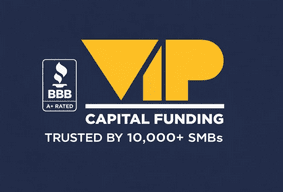Small Business Administration (SBA) loans are an essential financing tool for entrepreneurs who may not qualify for traditional bank loans. One of the key reasons these loans are accessible is the SBA’s loan guarantee program, which reduces the risk for lenders and makes it easier for small businesses to obtain funding. Understanding how SBA loans are guaranteed can help business owners navigate the lending process with confidence.
What Does SBA Loan Guarantee Mean?
An SBA loan guarantee means that the federal government backs a portion of the loan issued by an SBA-approved lender. This guarantee provides a safety net for lenders, ensuring that if a borrower defaults, the SBA will cover a percentage of the outstanding balance. By reducing the lender’s risk, this program encourages banks and credit unions to extend financing to small businesses that might otherwise struggle to secure loans.
How Much of an SBA Loan Is Guaranteed?
The percentage of the loan that the SBA guarantees depends on the loan type and amount:
- 7(a) Loan Program – The SBA guarantees up to 85% of loans under $150,000 and up to 75% of loans over $150,000, with a maximum loan amount of $5 million.
- 504 Loan Program – The SBA typically guarantees up to 40% of the total project cost, with a Certified Development Company (CDC) providing financing in conjunction with a private lender.
- Microloans – These loans, which can be up to $50,000, are not guaranteed by the SBA in the same way as larger loans but are issued through SBA-approved nonprofit lenders.
- SBA Disaster Loans – These loans, designed for businesses affected by declared disasters, are fully backed by the SBA but require collateral for amounts over $25,000.
How the Guarantee Affects Borrowers
While the SBA guarantee protects lenders, borrowers remain fully responsible for repaying the loan. If a borrower defaults, the lender will first attempt to collect the outstanding amount. If unsuccessful, the lender can file a claim with the SBA to recover the guaranteed portion. However, any personal guarantees or collateral pledged by the borrower may still be pursued by the lender.
Requirements for SBA Loan Guarantees
To qualify for an SBA-backed loan, businesses must meet certain criteria, including:
- Operating as a for-profit entity within the U.S.
- Meeting the SBA’s size standards for small businesses
- Demonstrating financial stability and ability to repay the loan
- Exhausting other financing options before applying for an SBA loan
The SBA also requires personal guarantees from business owners with at least a 20% ownership stake. In some cases, collateral may be necessary to secure the loan, depending on the amount and lender requirements.
Benefits of SBA Loan Guarantees
For both lenders and borrowers, the SBA guarantee program provides significant advantages:
- Increased Loan Accessibility – Small businesses with limited collateral or weaker credit histories have a better chance of approval.
- Lower Interest Rates – Since the lender’s risk is reduced, SBA loans often come with competitive interest rates compared to conventional loans.
- Longer Repayment Terms – Loan terms can extend up to 25 years for real estate and up to 10 years for working capital, making repayment more manageable.
- Encouragement for Lenders – Financial institutions are more willing to lend to small businesses knowing that a portion of the loan is backed by the government.
Key Considerations Before Applying
While SBA loan guarantees provide strong support, business owners should carefully assess their financial standing before applying. Understanding the lender’s requirements, gathering necessary documentation, and preparing a solid business plan can improve the chances of approval. Additionally, borrowers should be aware of personal guarantee obligations and any collateral that may be required.
SBA loan guarantees play a vital role in helping small businesses secure the funding they need to start, grow, or recover. By understanding how these guarantees work, entrepreneurs can make informed decisions when seeking financial assistance.


